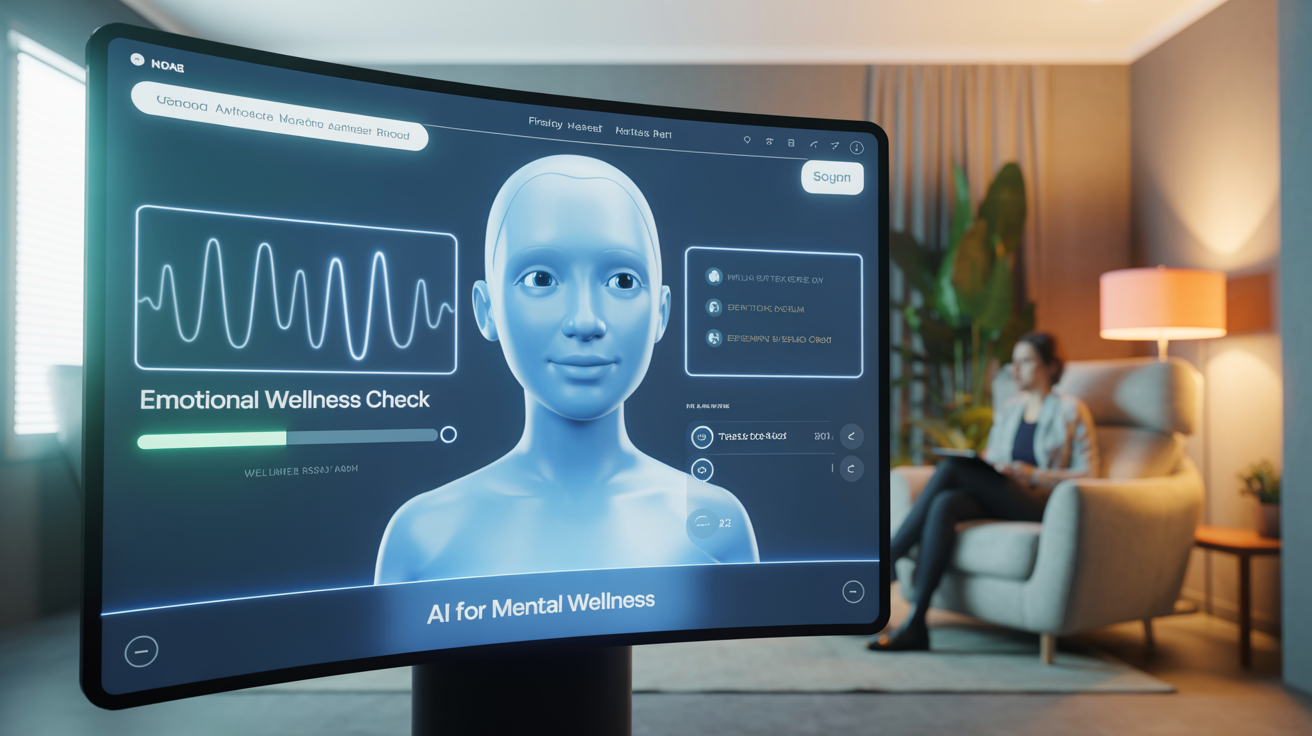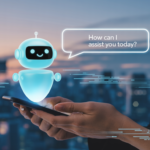Mental health is a cornerstone of overall well-being, yet millions worldwide struggle with conditions such as depression, anxiety, PTSD, and bipolar disorder. Despite increasing awareness, mental health care faces persistent challenges: limited access to professionals, stigma, inconsistent diagnostics, and lengthy treatment processes. In recent years, Artificial Intelligence (AI) has emerged as a transformative force with the potential to revolutionize mental health assessment and therapy. By harnessing vast data and sophisticated algorithms, AI tools can enhance diagnosis, personalize treatments, and extend mental health support beyond traditional boundaries.
The Growing Need for Innovation in Mental Health Care
Globally, mental health disorders affect roughly one in four people during their lifetime. Unfortunately, the gap between those needing care and those receiving effective treatment remains wide. According to the World Health Organization (WHO), nearly 75% of people with mental health conditions in low- and middle-income countries receive no treatment at all. Even in developed nations, barriers such as cost, geographic isolation, and social stigma impede timely intervention.
Traditional mental health care heavily relies on subjective clinical evaluations, self-reported symptoms, and therapist availability, which can delay accurate diagnosis and effective therapy. Moreover, the complex, multifaceted nature of mental illnesses demands personalized approaches tailored to each individual’s unique experiences and biology.
AI-driven tools promise to alleviate these challenges by improving the speed, precision, and accessibility of mental health services.
AI Tools in Mental Health Assessment
1. Predictive Analytics and Early Detection
AI algorithms excel at analyzing complex datasets to detect subtle patterns that humans might overlook. By integrating data from electronic health records, wearable devices, social media activity, and even speech and facial expressions, AI systems can identify early warning signs of mental health decline.
For example, machine learning models can predict the risk of suicidal ideation or depressive episodes by monitoring changes in sleep patterns, activity levels, or linguistic cues from text messages and social media posts. Early detection enables clinicians to intervene proactively, potentially preventing crises before they escalate.
2. Objective Diagnostic Support
Diagnosis in mental health often involves subjective interpretation and can be inconsistent between clinicians. AI tools provide objective, data-driven insights that supplement clinical judgment. Natural language processing (NLP) can analyze patient interviews or written responses to detect symptoms associated with disorders like schizophrenia or PTSD.
In addition, neuroimaging combined with AI can identify brain activity patterns correlated with specific mental illnesses, paving the way for more precise diagnoses. These approaches can reduce diagnostic errors and enable more targeted treatment plans.
3. Automated Screening Tools
Digital screening tools powered by AI are becoming increasingly popular in clinical and non-clinical settings. Chatbots and mobile apps can conduct preliminary mental health screenings using evidence-based questionnaires. These tools offer immediate feedback and recommendations for seeking professional help.
By expanding screening outside clinical environments, AI-powered apps increase access to mental health assessment for underserved populations and reduce stigma associated with seeking in-person care.
AI in Mental Health Therapy
1. AI-Powered Chatbots and Virtual Therapists
One of the most prominent applications of AI in mental health therapy is the rise of conversational agents — chatbots designed to provide cognitive behavioral therapy (CBT) and other therapeutic interventions. Examples include Woebot, Wysa, and Tess.
These AI chatbots simulate human-like conversations, offering support, coping strategies, and mood tracking 24/7 without the need for appointment scheduling or travel. While not a replacement for licensed therapists, they serve as accessible complements or stepping stones to formal therapy, especially for mild to moderate conditions.
2. Personalized Treatment Recommendations
AI can analyze individual patient data, including genetics, lifestyle, and treatment history, to recommend personalized therapy plans. This precision medicine approach enhances treatment efficacy by identifying the most suitable medications, therapy modalities, or lifestyle changes for each patient.
For instance, AI models can predict which antidepressant will be most effective for a patient, reducing the trial-and-error process that often delays recovery.
3. Enhancing Therapist Effectiveness
AI tools assist therapists by providing real-time insights during sessions. Speech and emotion recognition software can detect signs of distress, changes in tone, or non-verbal cues that might indicate underlying issues. This feedback helps therapists tailor their approach dynamically.
Moreover, AI-driven platforms manage routine administrative tasks such as scheduling, progress tracking, and documentation, allowing therapists to focus more on patient care.
4. Virtual Reality (VR) Therapy
Though not strictly AI, VR combined with AI enhances exposure therapy for anxiety disorders, phobias, and PTSD. AI algorithms adapt VR scenarios based on patient responses, gradually increasing exposure intensity in a controlled environment.
This immersive and customizable therapy helps patients confront fears safely, improving treatment adherence and outcomes.
Ethical and Practical Considerations
While AI holds great promise, integrating it into mental health care raises important ethical and practical issues:
- Privacy and Data Security: Mental health data is extremely sensitive. Ensuring robust data protection and transparent consent mechanisms is vital to maintain trust.
- Bias and Fairness: AI models trained on biased datasets risk perpetuating disparities in diagnosis and treatment. Developers must prioritize diverse and representative data sources.
- Human Oversight: AI should augment, not replace, human clinicians. Clear guidelines are needed to delineate AI’s role and ensure accountability.
- Accessibility: AI tools must be designed with inclusivity in mind, accommodating different languages, cultures, and disabilities.
- Regulation: Mental health AI applications require rigorous clinical validation and regulatory approval to ensure safety and effectiveness.
The Future of AI in Mental Health
The integration of AI into mental health is still in its early stages but advancing rapidly. Future directions include:
- Multimodal Data Integration: Combining genetic, behavioral, environmental, and physiological data to develop holistic mental health profiles.
- Continuous Monitoring: Wearables and smartphones enabling real-time mood and behavior tracking, allowing just-in-time interventions.
- Explainable AI: Developing transparent algorithms that clinicians and patients can understand and trust.
- Collaborative Care Models: AI tools embedded in broader healthcare systems, facilitating seamless coordination between mental health providers, primary care, and social services.
- Global Mental Health Impact: AI-driven platforms breaking down geographical and socioeconomic barriers to deliver scalable mental health support worldwide.
Conclusion
Artificial Intelligence is reshaping mental health care by offering innovative tools for assessment and therapy that improve accessibility, accuracy, and personalization. From early detection and objective diagnostics to AI chatbots and VR-assisted therapy, these technologies are transforming how mental health challenges are identified and treated.
However, the successful adoption of AI in mental health depends on careful ethical considerations, clinical validation, and collaboration between technologists, clinicians, and patients. With responsible development and deployment, AI can become a powerful ally in addressing the global mental health crisis and supporting millions on their journey toward recovery and well-being.


